Ten festive facts to impress your family this Christmas
- Published

If you're spending time with friends and family during the holidays, why not impress them with some of Newsround's favourite fun, festive facts? (Try saying that with a mouthful of turkey sandwich.)
From mince pies to jingle bells, we've got top facts to wow your nearest and dearest.
Read on to for them all, and let us know your faves in the comments below.
What the X means in Xmas
Some people don't like the word "Christmas" being shortened to "Xmas". But what they might not realise is that "X" actually represents the Greek letter "Chi", which is the first letter of the Greek word for Christ, "Χριστός".

Shortening "Christmas" to "Xmas" actually has a historical reason
The first Christmas card
A man named Sir Henry Cole is said to be behind the first printed Christmas card, like the ones we buy in shops and send to each other today.
In 1843 Henry Cole asked someone called John Callcott Horsley to design it.
It had the words A Merry Christmas and a Happy New Year To You printed on it.
About 1,000 cards were made and cost a shilling each to buy - which was actually a lot of money at the time (around £3 in today's money).
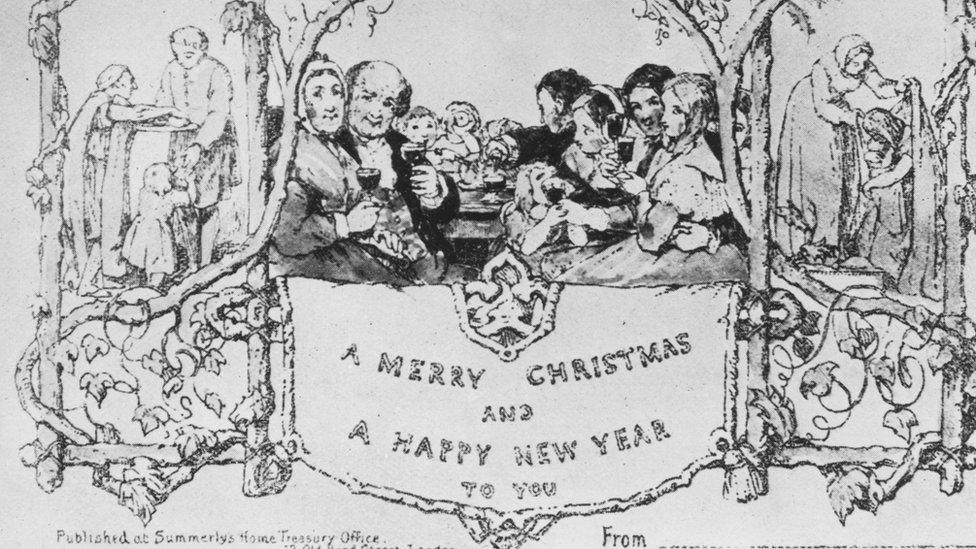
The first Christmas card showed people drinking a toast
Did the angel visit Mary or Joseph?
The Christmas story of Jesus' birth is actually pieced together from two different versions - one written in the gospel by Matthew and one by Luke.
The two stories, from each disciple, are slightly different. For example, while Matthew said the angel visited Joseph, Luke says that the angel Gabriel visited Mary to tell her she was pregnant.
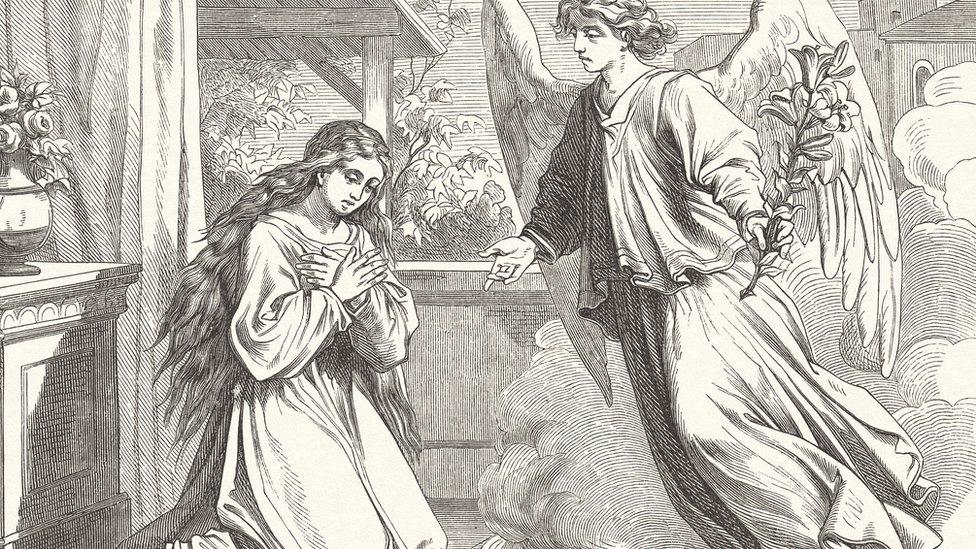
This drawing shows the angel appearing to Mary, which is how Luke tells the story. However, the gospel of Matthew in the Bible says the angel visited Joseph
Why is Advent called Advent?
Advent - the period leading up to Christmas - starts on the fourth Sunday before Christmas.
The word Advent comes from the Latin "adventus" meaning "arrival" or "coming".
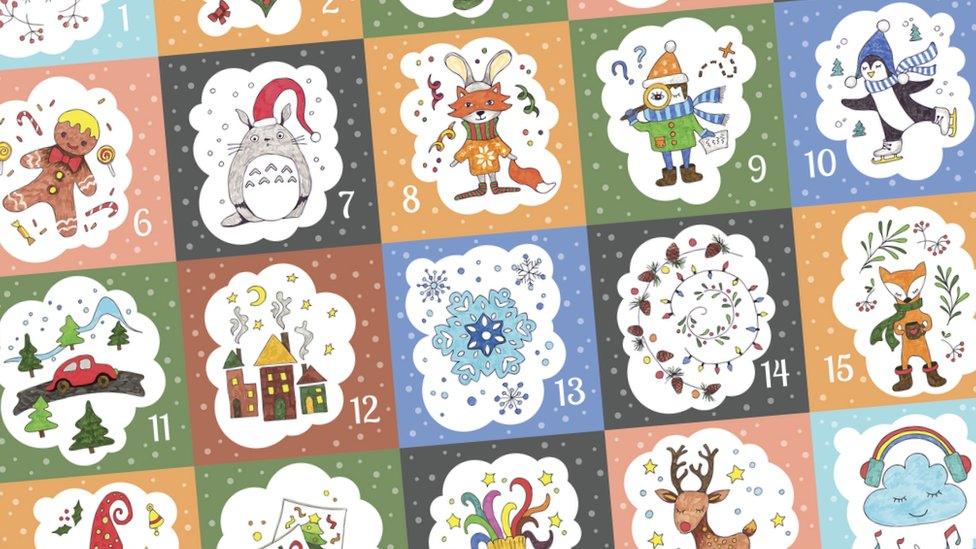
Many people might have an Advent calendar in the run-up to Christmas, without knowing that the word "Advent" actually comes from a Latin word, meaning Christmas is "coming"
Jingle Bells isn't a Christmas song
The song, Jingle Bells, wasn't originally written as a Christmas tune. It doesn't even mention Christmas, Advent or Jesus!
That's because it was actually written for Thanksgiving.
Mince pies once contained meat
During early Victorian times mince pies used to be made from actual, real-life meat! It is thought this tradition dated back to Tudor times.
However, throughout the 19th Century, the traditional mince pie recipe started to develop into the one we know today, with fruit and spices - and no meat!

Mince pies used to made with actual meat in them!
Is Christmas actually supposed to be in Spring?
The gospels in the Bible don't actually mention on which Christmas falls. It wasn't until the 4th century that the Roman church decided 25 December was when Christians should celebrate Jesus' birth.
Some historians even think he might have actually been born during the Spring.
One of the reasons for this is that the shepherds, who visited baby Jesus, were said to have been tending to their flock in the fields at the time they heard of his birth. Which they would have been doing during the spring - when lambs were being born.
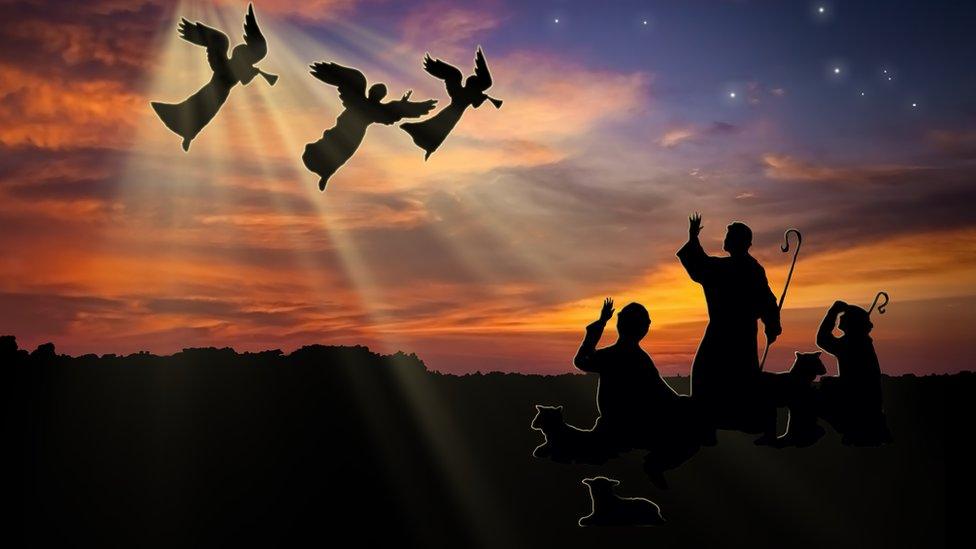
Some people think the fact the shepherds were said to be out in the fields with their flocks is proof that Jesus was born in the Spring, as the sheep would have been having their lambs
Christmas banned in the UK
In the 1640s parliament banned celebrating Christmas! People called puritans - who believed in a modest life led by stricter, religious rules - decided there should be no decorations and parties, like there had been up until then.
They thought Christmas had become too indulgent and that people had forgotten the religious significance of it. Many people kept celebrating in secret though, until it was allowed again.

Celebrating Christmas the way it is celebrated today could have landed you in a lot of trouble in the past!
Where does epiphany come from?
Epiphany is the name given to the day 12 days after Christmas, on 6 January, when the wise men are said to have visited the new baby and Jesus was shown to the world for the first time.
The word Epiphany comes from the Greek word meaning "show" or "reveal".
Who celebrates Christmas in January?
The majority of Orthodox Christians mark Christmas on 7 January.
This is because they actually use a different calendar - the Julian Calendar - which is 13 days behind the usual calendar, called the Gregorian calendar.
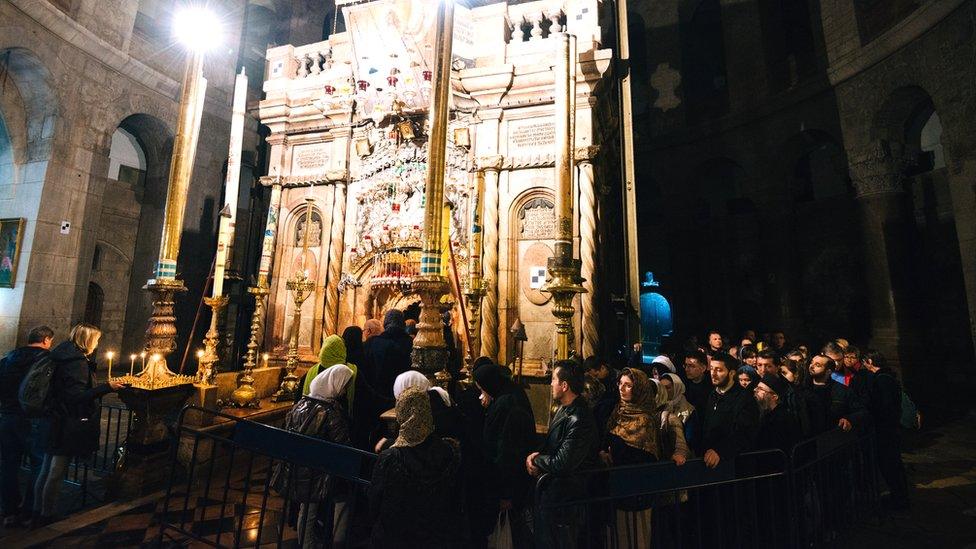
This picture shows Orthodox Christians waiting to worship at a church in Jerusalem on 7 January
- Published15 December 2021

- Published6 December 2022

- Published18 December 2023
